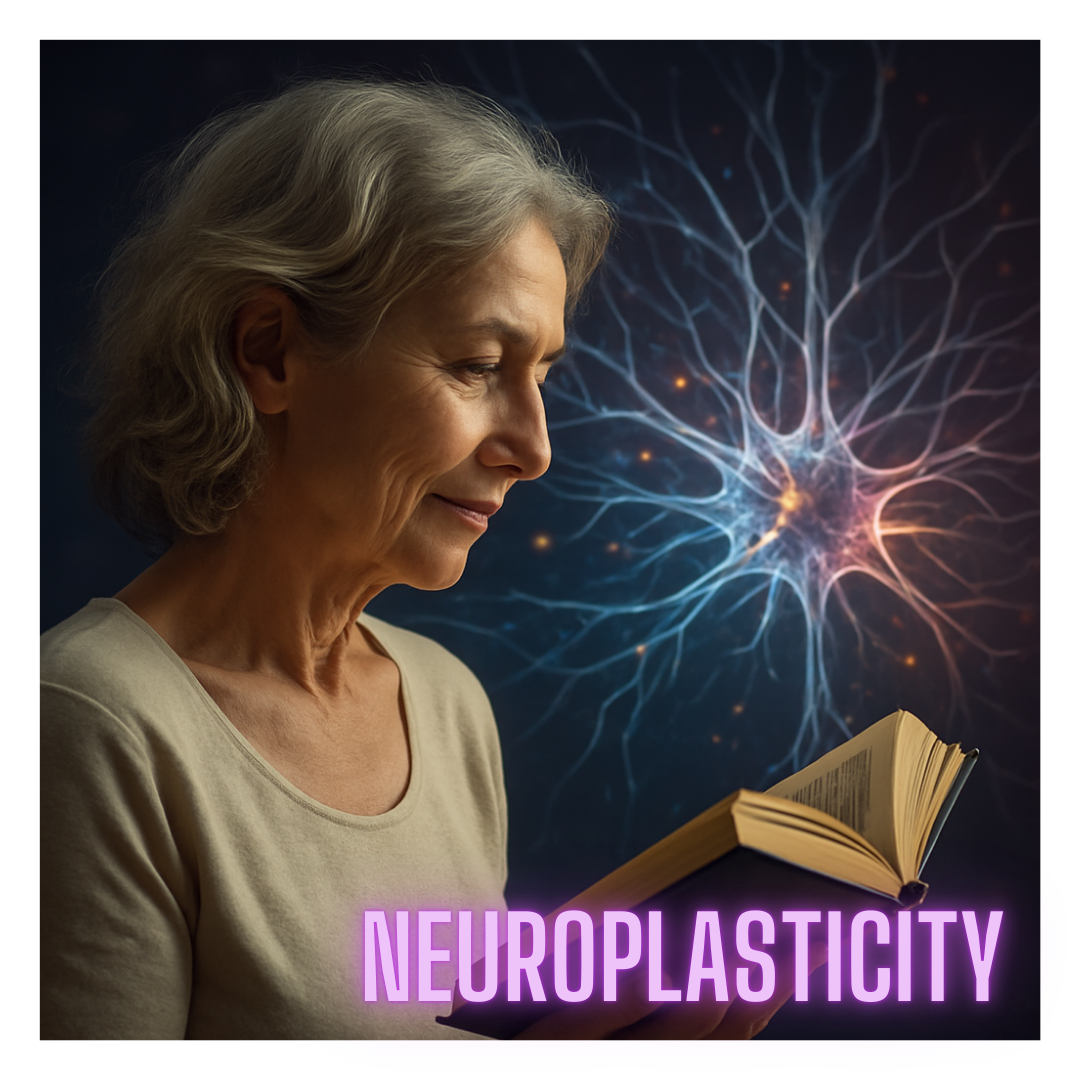
Your Brain Isn’t Fixed—It’s Flexible. And That’s the Key to Longevity.
We used to think the brain was static. That you had what you had—and it only declined with age. We were wrong.
Neuroscience now shows that your brain can reorganize, rewire, and strengthen itself well into old age. This ability is called neuroplasticity—and it’s the foundation of cognitive resilience, emotional regulation, and lifelong clarity.
The best part? You don’t need a PhD or a brain training app to unlock it. You just need to use your brain on purpose.
🧠 What Is Neuroplasticity?
Neuroplasticity is your brain’s ability to form new connections and restructure existing pathways in response to learning, behavior, and environment.
It's how you:
- Build new habits
- Heal from trauma
- Adapt to change
- Stay mentally sharp
It’s not just for the young. In fact, neuroplasticity may be more important as we age—when cognitive decline starts to creep in and stress threatens mental clarity.
🧬 Neuroplasticity = Brain Longevity
Your long-term brain health isn’t just about avoiding disease—it’s about building resilience and mental flexibility:
- Recovering faster from setbacks
- Staying focused under pressure
- Learning new skills well into your 40s, 50s, and beyond
This is how people defy "brain age"—by treating cognitive health like a muscle, not a mystery.
🛠️ How to Train Your Brain for Neuroplasticity
1. Learn New Skills Regularly
Pick up a language, learn guitar, take a class. Your brain grows through challenge.
2. Practice Deliberate Focus
Train attention like a skill. Meditation, breathwork, or simply single-tasking = neuroplastic gold.
3. Move Your Body
Exercise increases BDNF, a brain-growth molecule critical to memory, mood, and mental flexibility.
4. Prioritize Deep Sleep
REM and deep sleep are when your brain cleans house and consolidates neural changes.
5. Eat for Cognitive Performance
Omega-3s, polyphenols, choline, and antioxidants protect the brain and fuel new connections.
🚫 What Hurts Neuroplasticity
- Chronic stress
- Sleep deprivation
- Overstimulation (constant scrolling, multitasking)
- Lack of novelty or challenge
The modern world chips away at brain health. But the right habits can reverse the trend.
💡 Final Thought
Neuroplasticity isn’t a gimmick. It’s nature’s upgrade system.
You’re never too old—or too distracted—to start building a sharper, more adaptive mind.
📌 This Mental Health Monday, train your brain like it matters—because it does.
